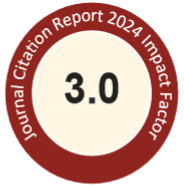Keywords
exosome, extracellular vesicle, mass spectrometry, proteomics, kidney-related diseases.
Abstract
Exosomes are small extracellular vesicles (sEVs) secreted from cells and have a general diameter ranging from 30~150 nm. It was reported that exosomes have essential roles in intercellular communication and can be targeted as biomarkers of disease or as therapeutic agents. Among the different techniques used for exosome investigation, the mass spectrometry-based proteomics approach has accelerated the unraveling of the molecular composition of exosomes and has contributed to improved knowledge of molecular processes in various diseases. In this review, we focused on proteomics-based studies of exosomes and clinical applications in kidney diseases. A general introduction of exosomes, isolation and characterization techniques, and proteomics-based study workflows are included in this article. We also categorized applications in acute kidney injury, chronic kidney disease, renal transplantation, congenital kidney disease, and malignant kidney disorder to show the important findings from proteomics-based exosomal investigations.
Recommended Citation
Brahmadhi, Ageng; Chuang, Yung-Kun; Wang, San-Yuan; Kao, Chih-Chin; and Tsai, I-Lin
(2022)
"Exosomal proteomics in kidney disease: From technical approaches to clinical applications,"
Journal of Food and Drug Analysis: Vol. 30
:
Iss.
2
, Article 3.
Available at: https://doi.org/10.38212/2224-6614.3409
Creative Commons License

This work is licensed under a Creative Commons Attribution-Noncommercial-No Derivative Works 4.0 License.
Included in
Food Science Commons, Medicinal Chemistry and Pharmaceutics Commons, Pharmacology Commons, Toxicology Commons


Abstract Image